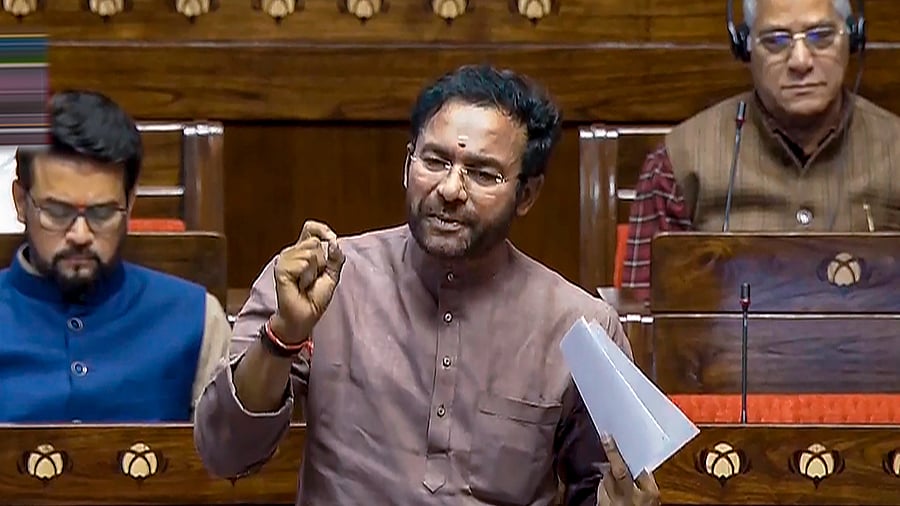
Union Minister G Kishan Reddy
Credit: PTI photo
Hyderabad: Union Coal and Mines Minister G Kishan Reddy on Friday said the anti-Hindi agitations witnessed sometimes are largely "politically motivated" and speaking Hindi should not be seen as an affront to one's mother tongue.
Speaking at 'Dakshin Samvad' organised here by the central government's Department of Official Language to mark its golden jubilee, he emphasised that India is the world’s largest democracy, united not by one language but by shared ideals and national commitment.
The BJP leader said Hindi (Rajbhasha) should be learnt and respected alongside our mother tongues.
He said he tries to speak in Hindi as it helps him communicate with people across the country, and doing so does not go against his mother tongue, Telugu.
"Those who speak against Hindi and agitate against Hindi, it is not an agitation concerning language. It is political agitation. This is vote bank politics. Whenever elections are held, before elections, some people try to provoke people by giving speeches in the name of anti-Hindi, anti-Hindu. It is wrong," he said.
Though we have different mother tongues, we are all one as a nation, he said recalling that Mahatma Gandhi, B R Ambedkar, C V Raman and other great personalities had stressed the importance of mother tongue.
Deputy Chairman of Rajya Sabha Harivansh lauded the Department of Official Language for organising Rajbhasha competitions to promote Hindi and foster linguistic unity across the nation.
Such initiatives strengthen the bond of unity in diversity through language, he noted and recalled the contributions of leaders from non-Hindi states like P V Narasimha Rao to Hindi.
Andhra Pradesh Deputy Chief Minister Pawan Kalyan echoed the sentiment, saying learning Hindi does not compromise one's identity but adds more strength.
"We took advantage of the opportunities in IT sector because we learnt English. There are advantages in learning Hindi which is widely spoken in the country and no disadvantages," he said.
"(If) you could accept Urdu, why don't you accept Hindi," Kalyan said.
Pointing out that many South Indian films are dubbed into Hindi, generating revenue for filmmakers, he asked why Hindi is embraced for business but resisted when it comes to learning.